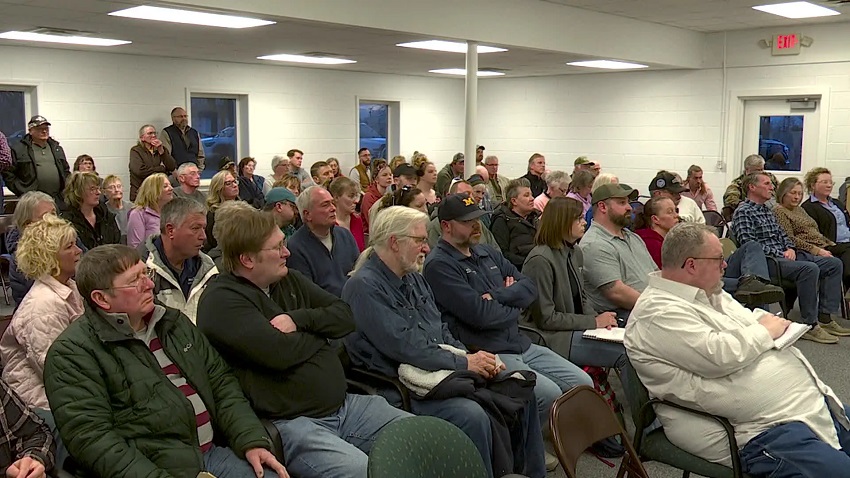Odessa Township, Mich. – In a contentious meeting Monday night, the Odessa Township Board voted 2-2 to reject an application for a permit to establish a temporary testing facility for Cordelio Energy’s proposed wind turbine project. The decision followed a passionate hour-long public comment session where residents voiced staunch opposition to the project, citing concerns about environmental impacts, noise pollution, and the potential devaluation of property.
Local residents have expressed deep fears over the implications of wind turbines on the township, a sentiment echoed in the comments made during the meeting. One resident described the project as a threat to the community’s future, saying, “This is going to shut the town down.” Another added, “This beautiful land is being forfeited so the city can get some more power.” Concerns also ranged from the potential loss of residents to the spoiling of Ionia County’s scenic landscape.
Despite the board’s decision to deny the permit, the vote was largely symbolic. The testing facility in question, a tower necessary for data collection ahead of the wind turbine project, has already been built and is currently operational. The tower, which was erected in November 2024, was one of three owned by Cordelio Energy in the area. However, its construction was approved by the Ionia County Building Department without the necessary permit from the township, a requirement under the township’s wind energy ordinance passed in 2019.
Cordelio Energy admitted the oversight and sought the necessary approval from the township earlier this year. The appearance of the permit request on the board’s agenda, however, sparked a surge of opposition from anti-wind turbine advocates, leading to a heated exchange during the meeting.
Now that the township has voted to reject the permit, Cordelio Energy is expected to seek approval from the Michigan Public Service Commission (MPSC). If the MPSC grants the permit, it could effectively nullify the township’s wind energy ordinance, limiting the township’s ability to regulate the wind turbine project. Supervisor Gary Secor warned that such an outcome could render the local wind ordinance powerless, complicating efforts to manage the project when it reaches fruition.
Further complicating matters is a recent state law, passed last year, that grants the Michigan Public Service Commission the authority to override local ordinances when it comes to utility-scale renewable energy projects. This development has added another layer of tension to the already divisive issue.
State Representative Gina Johnsen, a Republican representing Lake Odessa, also voiced her frustration during the meeting, criticizing the state’s recent decision to limit local control over energy projects. “The state voted that you don’t have the authority to make the decision for what the people want,” Johnsen said, urging the board and the community to continue fighting for their rights. She encouraged the township to remain vigilant and organized in their opposition to the project, suggesting that a continued effort might serve as a “stall tactic” to delay the project or make a statement against state overreach.
As the township moves forward, the next steps remain unclear. The outcome of the Public Service Commission’s involvement could significantly impact the future of wind energy in Odessa Township. While the community remains unified in its opposition, the legal and regulatory landscape will likely dictate the final decision on the wind turbine project.
The debate over renewable energy development in the township highlights the broader conflict between local governance and state-level energy policy. As the tension between community interests and state authority escalates, it remains to be seen how the situation will unfold in the coming months.







